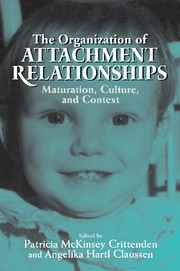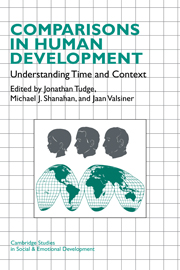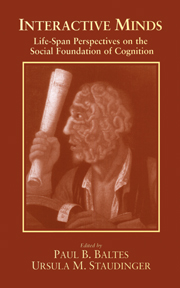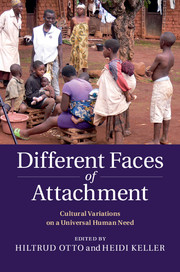The Organization of Attachment Relationships
Quality of attachment has been a central variable in developmental research during recent decades. However, even though attachment is relevant to all cultures and humans of all ages, the majority of research has focused on middle class infants in Anglicized cultures. Further, the function of attachment to protect humans from danger has been overlooked in a focus on the advantages of safety and security. This volume, first published in 2000, presents a theory on attachment that broadens its range to ages beyond infancy, to many cultures and to endangered populations, including both psychopathological individuals and those living in threatening contexts. The intent is to provide new theory and methods to better understand human variation in interpersonal and cultural self-protective strategies. The expansion of the attachment classificatory system beyond its roots in infancy and to a broad range of cultures differentiates this volume from other work on attachment.
- Dynamic-maturation model of attachment across the lifespan
- Wide cultural variation in the contributions
- Cross-ecological perspective
Product details
September 2003Paperback
9780521533461
446 pages
229 × 152 × 23 mm
0.61kg
28 b/w illus. 72 tables
Available
Table of Contents
- 1. Introduction Patricia McKinsey Crittenden
- Part I. Maternal Sensitivity:
- 2. Parents and toddlers at play: evidence for separate qualitative functioning of the play and attachment system Karin Grossmann and Klaus Grossmann
- 3. Parent-child synchrony of interaction Graziella Maria Fava Vizzielo, Chistina Ferrero and Marina Musico
- 4. Maternal sensitivity and attachment in East German and Russian family networks Liselotte Ahnert, Tatyana Meischner and Alfred Schmidt
- 5. Behavior problems in Swedish four year olds: the importance of maternal sensitivity and social context Gunilla Bohlin and Berit Hagekull
- 6. Attachment strategies in Egyptian school-aged children Anna von der Lippe and Patricia M. Crittenden
- 7. Summative chapter: maternal sensitivity Angelika Kartl Claussen and Patricia M. Crittenden
- Part II. Context:
- 8. Attachment in Finnish twins Irma Moilanen, Anne Kunelius, Tiina Tirkonnen, Nathan Szajnberg and Patricia M. Crittenden
- 9 Characteristics of attachment behavior in institution-reared children Stanislawa Lis
- 10. Attachment in children adopted from Romanian orphanages: two case studies Kim Chisolm
- 11. Child development in the context of maternal depression: a view from the intermountain west Douglas M. Teti
- 12. Relations among mothers' dispositional representations of parenting Patricia M. Crittenden, Claudia Lange, Angelika Claussen and Mary F. Partridge
- 13. Summative chapter: adaptation to varied environments Patricia McKinsey Crittenden and Angelika Hartl Claussen
- Part III. Maturation:
- 14. Stability and change in infant-mother attachment in the second year of life: relations to parenting quality and varying degrees of daycare experience Hellgard Rauh, Ute Ziegenhain, Bernd Muller and Lex Wijnroks
- 15. Change and continuity in ambivalent attachment relationships from infancy through adolescence Sydney L. Hans, Victor J. Bernstein and Belinda E. Sims
- 16. Attachment models peer interaction behavior, and feelings about the self: indications of maladjustment in dismissing preoccupied (Ds/E) adolescents Katherine Black, Lyz Jaeger, Patricia M. Crittenden and Kathleen McCartney
- 17. Attachment representation in adolescence and adulthood: exploring some intergenerational and intercultural issues Isabel Soares, Elisabeth Fremmer-Bombik, Klaus E. Grossmann and M. Carolina Silva
- 18. Summative chapters: a dynamic maturational approach to continuity and change in quality of attachment over time Patricia McKinsey Crittenden and Angelika Hartl Claussen
- 19. A dynamic-maturational exploration of the meaning of security and adaptation: empirical, cultural, and theoretical considerations Patricia McKinsey Crittenden.






